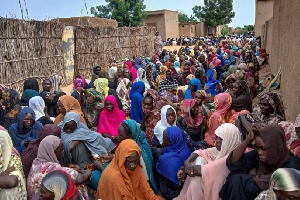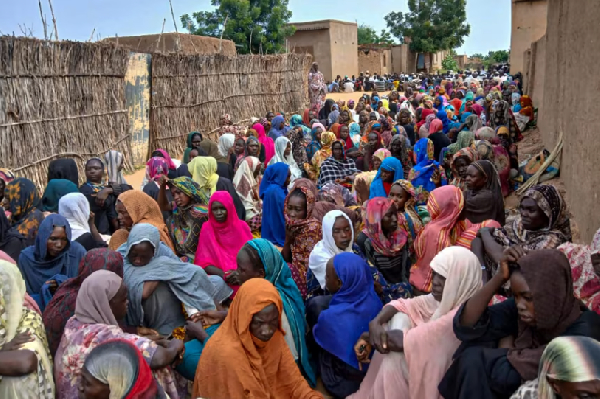 File photo a scene from Sudan
File photo a scene from Sudan
More than 60,000 people have fled the Sudanese city of El-Fasher, which was captured by the paramilitary Rapid Support Forces (RSF) over the weekend, according to the UN refugee agency.
Reports have emerged of mass executions and crimes against humanity as RSF fighters stormed the city following an 18-month siege marked by starvation and heavy bombardment.
The flow of those fleeing the violence towards the town of Tawila, about 80km (50 miles) west of El-Fasher, has intensified in recent days, UNHCR spokesperson Eujin Byun told the BBC.
“They are narrating horrendous stories of atrocities, including rape,” Ms Byun said, adding that the agency was struggling to provide enough shelter and food.
“Every child is suffering from malnutrition,” she added.
It is estimated that more than 150,000 people remain trapped in El-Fasher, which had been the army’s last stronghold in the western region of Darfur.
The RSF has denied widespread allegations that the killings in El-Fasher are ethnically motivated or part of a broader pattern of attacks on non-Arab populations.
However, the group confirmed it had detained one of its militiamen, Abu Lulu, accused of carrying out summary executions.
The RSF released footage of his arrest after BBC Verify identified him as being responsible for the killing of multiple unarmed men near El-Fasher.
TikTok told the BBC it has banned an account associated with Abu Lulu, though it remains unclear if he directly controlled it.
Sudan was plunged into civil war in April 2023 after a violent power struggle erupted between the army and the RSF.
The conflict has triggered famine conditions and allegations of genocide in the Darfur region.
More than 150,000 people have been killed nationwide, and about 12 million displaced — creating what the UN calls the world’s largest humanitarian crisis.
The capture of El-Fasher further entrenches the country’s geographic split, with the RSF now controlling western Sudan and much of neighbouring Kordofan to the south, while the army retains control of Khartoum, central, and eastern regions along the Red Sea.
The two warring sides were once allies, seizing power together in a 2021 coup before falling out over an internationally backed plan to transition to civilian rule.
